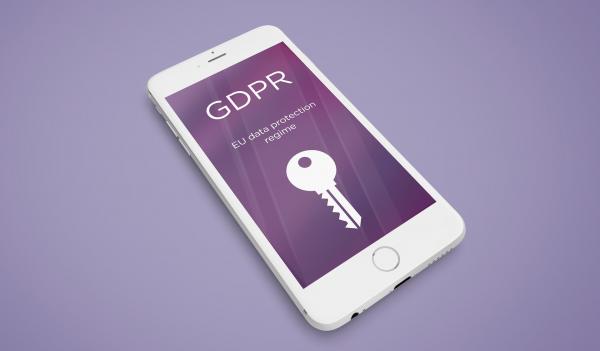Here we explain the various regulatory and professional requirements that need to be considered when working in independent practice.
ON THIS PAGE:

Regulation: Health and Care Professions Council (HCPC)
The terms ‘physiotherapist’ and ’physical therapist’ are protected titles, regulated by the Health and Care Professions Council (HCPC) .
To work as a physiotherapist in the UK, you must be registered with the HCPC and comply with the HCPC standards.
Your HCPC registration provides evidence to external bodies that you are being appropriately regulated. For instance, in terms of local authority licensing for private practices and during commissioning processes.
Insurance
Registered physiotherapists are required to have appropriate professional indemnity for their work. Professional Liability Insurance (PLI) is provided for eligible members of the Chartered Society of Physiotherapy (CSP) subject to policy terms and conditions, to cover your individual work.
However, you may require additional insurance if you:
- deliver services through a limited company or partnership
- employ people
- are involved in activities outside the scope of physiotherapy practice.
The extent of insurance required by any private practitioner will depend upon a number of factors and individual circumstances. It is essential that you are properly covered.
You are responsible for establishing the right level of insurance cover. In the first instance, we advise you to take advice from the CSP Insurance Broker, or another specialist broker regulated by the Financial Conduct Authority.
The CSP produces information and guidance papers on the current PLI insurance scheme, together with various optional insurance covers. This is essential reading if you are working in private practice or if you are considering doing so.
Support workers can take out Associate Member CSP Membership, which includes PLI cover. This provides cover for carrying out tasks delegated by a registered health and social care professional.

Data: Information Commissioner’s Office (ICO)
Most self-employed physiotherapists must be registered with the Information Commissioner's Office (ICO) as they hold and process sensitive data in the form of the patient record, or patient notes.
You can check whether you need to register by using the ICO’s quick self-assessment test.
The General Data Protection Regulation (GDPR) has recently changed some requirements relating to data. As an independent practitioner, it is important you understand these GDPR regulations.
Members should consider publishing a privacy notice to inform patients of how their personal information will be treated.
Care quality regulation
Within the NHS, physiotherapy services are subject to health and care quality regulation as part of the larger organisation’s responsibility.
Most self-employed physiotherapists and small physiotherapy practices do not currently need to register with the Care Quality Commission (in England) or the respective devolved countries' equivalent organisations (Healthcare Inspectorate in Wales; Care Inspectorate in Scotland; Regulation and Quality Improvement Authority in Northern Ireland). This is currently accepted practice because physiotherapists are HCPC regulated.
However, if your practice includes other health professionals who do have to be registered, such as doctors and nurses, or if you have any formal business partnership with them, you may need to register.
In addition, some activities are subject to regulation, and it is possible that some private physiotherapy businesses could be included. An example of this would be if your service removes tissues, cells or fluid from the body – most likely in the form of taking bloods or using specialised equipment to monitor certain physiological functions.
These practices should contact their respective country’s health and social care regulatory organisation for quality, to determine their requirements:
- England: Care Quality Commission
- Scotland: Care Inspectorate
- Wales: Healthcare Inspectorate Wales
- Northern Ireland: Regulation and Quality Improvement Authority

Local authority requirements
Some local authorities require physiotherapists to comply with rules on any changes to premises, fire regulations, parking and so on.
New premises must be set up in line with the Equality Act and the Disability Discrimination Act, as well as the processes for dealing with clinical waste, such as acupuncture sharps.
Medicines and Healthcare Products Regulatory Authority (MHRA)
The Medicines and Healthcare Products Regulatory Authority (MHRA) is a useful source of information. You can sign up for MHRA email alerts here.
The Health and Safety at Work Act
The 1974 Act with subsequent additions extended the scope of health and safety legislation to cover all persons at work as well as the general public who may be affected by work activities. As such, a physiotherapist who runs a private practice will be affected by the Act.
The regulations are very extensive, and we advise you to check with your local office of the Health and Safety at Work Executive with regard to your responsibilities under the law.
The Health and Safety Executive provides statutory information on aspects of employment. It is also a useful source for workplace statistics.

DBS checks
Some commercial intermediaries and other settings require practitioners to have a Data Disclosure and Barring (DBS) check (previously known as a CRB check).
DBS checks are designed to be conducted through an employer. This is because the check itself may contain unspent convictions that an employer or umbrella body would wish to know about. They need this information to make sure a person is suitable to work in a sector where they would be dealing with vulnerable people, as in the case of physiotherapy. An individual cannot carry out a full check on themselves.
A self-employed person can get a DBS check in a couple of different ways. You can apply for a 'basic' DBS check and this will provide full details of any unspent convictions. You will then need to share this with any person or organisation who is buying your services.
However, if a self-employed person needs a DBS certificate at the Standard or Enhanced level (for example to be able to work with major insurers, commercial intermediaries or in schools or care homes) they must get an organisation that they work with (or might be working with) to apply for it on their behalf. You might also be a member of a professional body or umbrella organisation that can help. The CSP cannot work as this umbrella organisation for private practitioners but Physio First operates a full DBS checking scheme that can manage this process for you.